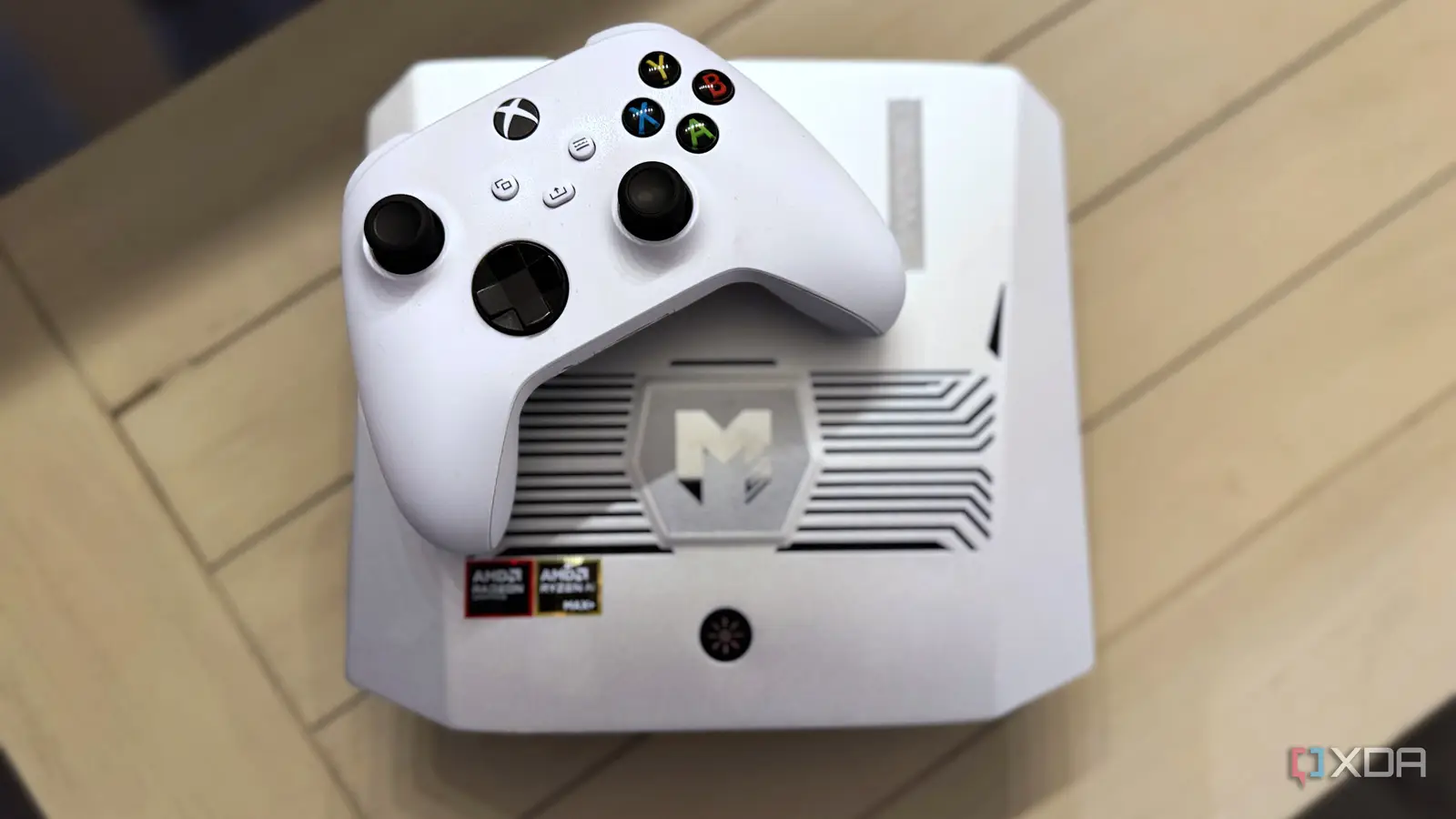Copyright XDA Developers

It's all too easy to think you need a desktop PC to get the best experience, but that's just not true anymore. Sure, you won't be able to use flagship graphics cards without an eGPU enclosure, but that doesn't mean you can't game. APUs like Strix Halo and iGPUs generally have gotten very good and are enough for all but the most demanding titles. I spent so many years chasing performance in a large desktop tower chassis, and while I don't regret the time spent, my needs have changed. I value physical desktop space, no longer care about chasing internet clout with benchmarks, and do most of my work inside a web browser. I also don't travel much, otherwise I would be looking into a MacBook for that purpose. These are just a few reasons I've been on the downsizing tip, and now do most of my work from a cluster of mini PCs. One for writing, one for gaming, hooked up to the TV, and a few used in my home lab for various services. If I did this with desktop PCs, my office would soon be overcrowded, to say nothing about the noise and heat. Mini PCs are increasingly powerful They're a far cry from the days of underpowered components If you haven't used a mini PC for a while, I can't blame you if you think they're not much better than e-waste. They haven't used the best components in the past, and the low-power CPUs used have been terrible. But that was then, and this is now, and technological leaps in efficiency have made super low-power CPUs that also have plenty of processing power to get things done. Recent CPUs have powerful iGPUs, which are equally up to the tasks of productivity and gaming. Sure, not to the level of flagship CPUs and GPUs, but enough for a good experience. AMD's Strix Halo is an outlier here, because it's a desktop-level CPU paired with a capable GPU, and up to 128GB of unified DDR5 RAM to chew through couch gaming (which is where mine is). And then there's the slew of Arm-based mini PCs to consider. Whether the Mac Studio, Mac mini, or anything powered by the Qualcomm Snapdragon X Elite, like the Lenovo ThinkCenter Neo 50q I'm currently testing, Arm gives you plenty of power for your needs. I'm in the process of switching over to a Mac Studio, and it's astonishingly fast, and I don't have to deal with Windows driver issues. The power is nice, sure, but I'm also looking forward to reclaiming my desk from the behemoth of a PC that's on it. Show me a desktop that has six M.2 slots I've got multiple mini PCs in my home lab, but the star of the show is the Beelink ME mini and the six M.2 slots it has inside. As it's running an Intel N150, there aren't enough PCIe lanes for every slot to be at x4, but that's okay. Even with most of the slots running at x1, the 2.5GbE networking on this device will saturate way before I run out of SSD speed, and capacity is king when I'm using it as an all-flash NAS. They come in configurations for my needs Whether it's for an OPNsense router or for Proxmox clusters So, my desktop PC is now a mini PC, and so is one of my NAS units. But that's only scratching the surface of many different mini PC configurations out there. I've got one running VMs that replaced a Raspberry Pi cluster, one running my smart home, and one running an OPNsense firewall. I've had a Proxmox HA cluster running with identical mini PCs, DNS servers, and a whole litany of home lab uses that get wiped when I'm done. These are very different devices, with varying numbers of Ethernet ports, CPU, RAM, storage amounts, and form factors. Handling these tasks with desktop PC components would not only take up a lot more space but would cost more initially and more to run in electricity costs. I don't need the portability of a laptop I don't travel often and work from home, so I don't need to move my computer anywhere. Plus, my workflow needs lots of monitor space, and that's an impossibility on a laptop. Add in the noisy fans in laptops and the overall subpar thermal performance, and I'm better off with a mini PC. I know, those two things can happen in mini PCs as well, but I've been lucky with the ones I own, and the fan noise is tolerable. The only time I need anything more powerful is for some games I'll admit that, while my console-replacement mini PC can play 95% of my game library (and that's a hefty feat when there's some 3,000 games in it), there are some titles that it struggles with. But that's very few games overall, and I never said I'd gotten rid of my gaming PC, only that I don't need it most of the time. I've got a powerhouse SFF build for those AAA titles that won't run on anything lower than the best hardware, but between the mini PC and an Xbox ROG Ally, I find I'm not firing up the gaming PC as much as I used to. I have a huge backlog of indie titles that I'm getting immense satisfaction from playing through, and the only thing my gaming PC has running currently is Battlefield 6. Mini PCs are never far from my desk I've always loved the idea of mini PCs, with a tiny box running my operating system and the programs I need. That's all it was, an idea, until the last few generations of processors showed that you can have power and efficiency in the same package. Now I've got a small army of mini PCs at my disposal, running my home lab, parts of my network, and my smart home. It's safe to say I'll not be returning to bulky PCs for most of my computing needs any time soon.



